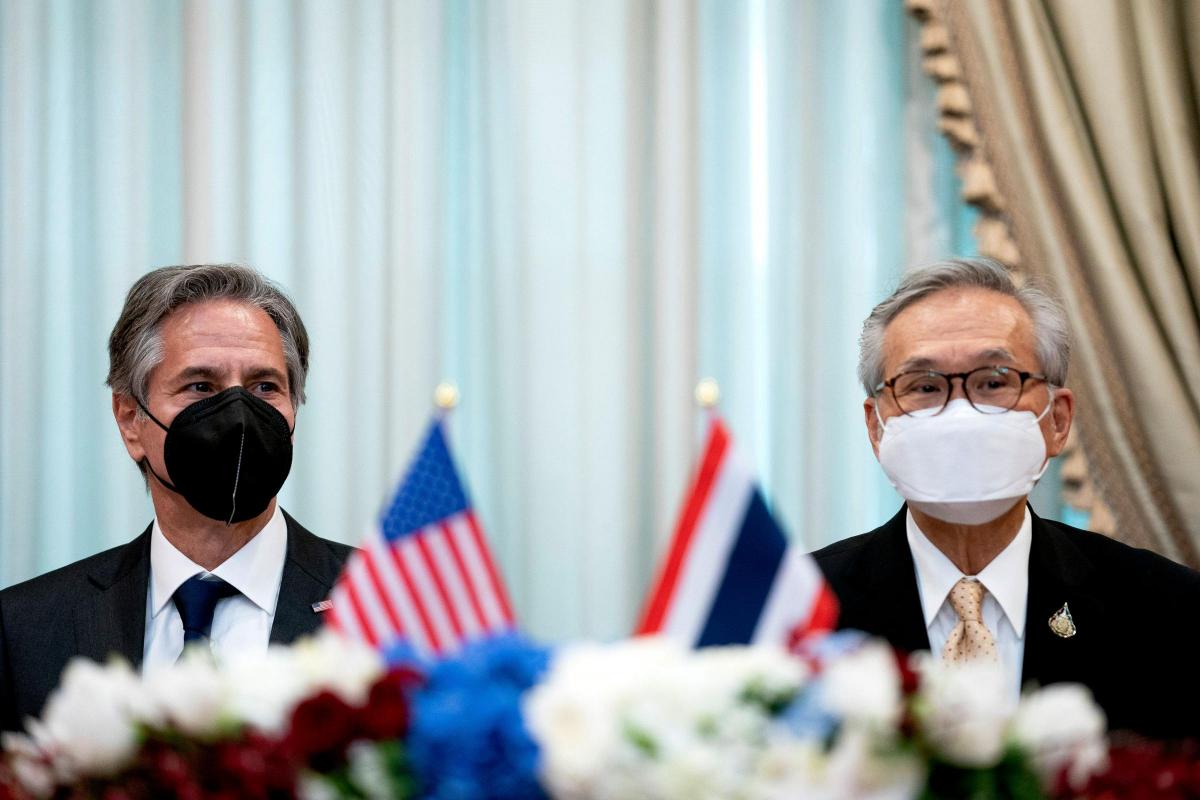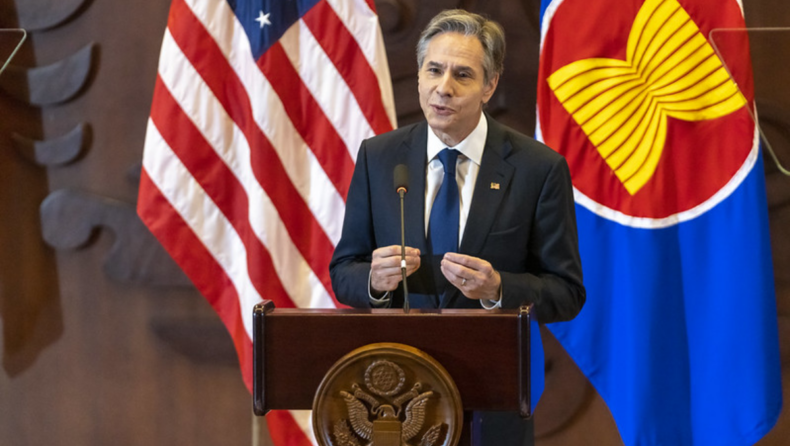US government is aggressively strengthening its ties with south-east Asian nations under the broader Indo-pacific vision which envisions the region to be free, connected, open, prosperous, and resilient.

US Secretary Anthony Blinken is on a five-day visit to Asia where he first attended G20 Foreign Ministers Meeting in Indonesia, followed by his visit to Thailand, and will finally conclude his visit in Tokyo.
The visit to Thailand is significant because of US’s renewed interest in Asia-Pacific. Here, Sec. Blinken met with Prime Minister Prayut Chan-o-cha, Deputy PM, and Foreign Minister Don Pramudwinai. He discussed a wide range of issues, which included Thailand’s APEC 2022 agenda, cooperation in health, and climate change mitigation, he also addressed the political crisis in Myanmar following the military coup. The visit comes after the international conference in Bali, Indonesia where the Foreign Minister yet again raised concerns about China’s increasing assertiveness in the Indo-pacific region and its support of Russian aggression on Ukraine.
During his visit Blinken met with various senior officials and signed two cooperation agreements with his Thai counterpart, Don Pramudwinai, pledging to expand strategic cooperation and strengthen supply chain resilience. With the Russia-Ukraine war entering into the 5th month, the world is moving towards an inevitable economic crisis caused by high inflation and supply chain disruptions; in this respect, supply-chain resilient Indo-pacific is of utmost importance to developed countries as it houses some of the major producers of essential commodities.
“The U.S.-Thailand Communique on Strategic Alliance and Partnership we signed reflects the deep and broad nature of our relationship and our ongoing desire to increase cooperation for greater prosperity for both our nations”—said Secretary Anthony Blinken via a tweet.
https://twitter.com/SecBlinken/status/1546022753622523906?s=20&t=O_8IqYHunxeYyuNu6ehaTQ
Thailand is US’s oldest ally in south-east Asia and the two countries enjoy strong and deep strategic relations. Its location makes it a favorable country to counter Chinese ambitions and its sweeping claims over the south-China sea. US administration (both former and the current one) on various occasions have criticized China’s dominance in the south China sea and its infrastructure development projects, accusing it of trapping the poor and middle-income countries with “initially” attractive loans and then “saddling them with debt”.
Indo-Pacific Economic Framework For Prosperity
Earlier, this year QUAD countries launched the Indo-pacific economic framework for prosperity. IPEF is a bloc of 14 nations that aims to strengthen economic and diplomatic relations with the countries in the region. Thailand is also part of this grouping. Also during the recently concluded G7 Summit, the US along with its allies launched the Partnership for Global Infrastructure and Investment (PGII).
All of these developments are the result of the US’s fear that the growing Chinese footprint in the indo-pacific will prove to be a threat to its absolute power.
World leaders have time and again labeled the indo-pacific as the epicenter of “great power competition” in the coming decades. Increasing interests of the USA, the assertiveness of China, and the proactive working of QUAD has attracted the world’s attention towards a strategic region that was neglected for a long. In this race to increase influence and establish dominance, the region will now witness more frequent encounters between the world’s superpowers. In this whole process, we hope the region continues to grow and prosper. India as a regional power will have to play a decisive role with a special focus on our interest and hopefully, the great power contention does not turn into a violent battleground of war.













